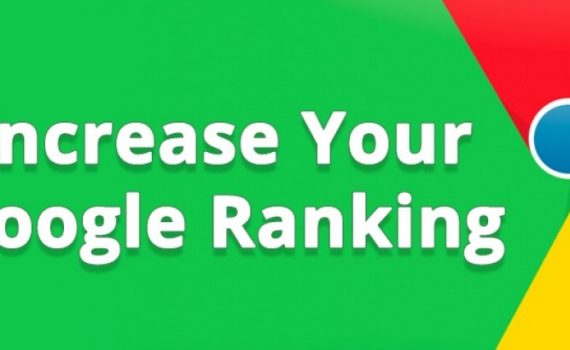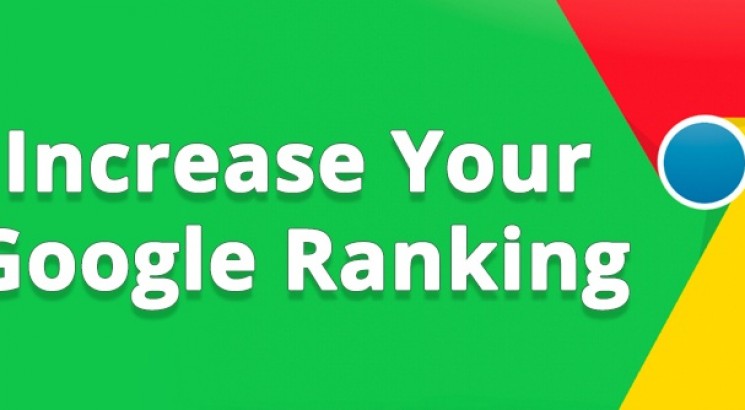
Top smart ways to improve Google ranking
Category : Talk To Our SEO Experts
You want to get your website to the top of Google’s search results? You can do it—if you understand what it takes to rank. Although Google keeps its official list of ranking factors a secret, the key to getting your business to rank higher on Google is not as mysterious as it may seem
How Do Google Search Rankings Work?
When people want to find information, they type or say words related to what they’re looking for. Those are called keywords, and we’ll look at those in the content optimization section of this guide.
But search engine rankings are not just about keywords; they’re also about the quality of information.
According to Google’s own search quality ratings, when it indexes the main content of each page, it checks factors like:
– The purpose of the page
– Expertise, authority, and trustworthiness – not just from the site and the page content, but expertise from the individual creator of the content too.
– Content quality and amount
– Website info and info about the content creator
– Website reputation and content creator reputation
These go into its ranking algorithm and help to determine SEO ranking.
Based on the rating guidelines above, Google shows searchers the most relevant, high quality results related to what they’re looking for. The most relevant are shown first, with the rest being shown over successive pages.
One of the goals of addressing SEO ranking factors is to let Google know when your pages on your site are relevant to particular search queries, so people will click the links and visit your site.
Let’s be clear, though: there’s never a guarantee of a page one or #1 rank, and with SEO guidelines changing all the time, search engine rankings change with them.
Optimize those page titles
When it comes to Google, as well as other popular search engines, the HTML
Tag is a valuable piece of metadata for your page and should be correctly structured.
The title tag should serve as a concise description of your page’s content – and no two title tags should ever be the same (Google doesn’t like duplication). To write a title tag that will help boost your page’s organic search ranking, you should keep it under 70 characters, with the most relevant or primary keywords near the start. It’s also a good idea to include your brand keyword (the keyword used to search for your company name or a variation on this) if you’re trying to boost your brand authority.
So, how should your title tag be structured? Here’s an example of a good title tag…
The HTML title tag is a valuable piece of metadata for your page and should be correctly structured.
Esquire Mag, looking to rank well for ‘best burgers in London’ (it currently ranks number one in Google’s organic search results), has included the keyword they want to rank for at the beginning of their page’s title tag; it then goes onto describe the page’s content more specifically in an engaging way that uses the words ‘buns’ rather than repeating the term burgers – this serves to widen the net of search terms that they might appear for. Keyword rich, enticing, concise, and natural – the perfect ingredients for a great title tag.
Spruce up your meta descriptions
While your meta description isn’t a direct ranking factor regarding search crawling, it does have an impact and if written well, this small snippet of sales copy encourages people to click through to a webpage, boosting its authority and helping your page to rank better for certain keywords. Also, if you use your target keywords in the description, Google will bold them when your page appears on SERPS, making it more eye-catching to web searchers.
Write compelling meta descriptions
The <meta name= description content= > HTML tag is meant to be a concise explanation of a web page’s content. Google displays your meta description beneath the page title in their organic results. While meta descriptions aren’t as important as page titles in your Google ranking, they do play a big role in getting clicks from users. People read descriptions as a preview of your page and use it to determine if your content is worth visiting. You should keep your meta descriptions to under 150 characters since Google won’t display text beyond that. You should also include target keywords in your text, since any words matching a user’s search query will be displayed in bold.
Creaating quality content
We’re sure you’ve heard this one before, but content is still the king of the SEO world this year. User experience is Google’s big priority; creating quality content that is easy for the user to find and understand is key.
There’s a lot that goes into creating quality content, but the basic idea is that Google will recognize and reward content that helps users find the information they were looking for. Think of it as a farm—would you rather have a hundred tomatoes that are semi-ripe and hard as a rock, or would it be better to have a dozen vine-ripened, cherry red tomatoes? When it comes to content on your website, the pages should be the juiciest tomatoes ever.
Quality content means not falling for the most common SEO mistakes, such as keyword stuffing, scraping content, or writing thin content that has little or no value to users. Google’s overall priority is user experience, so if your content doesn’t deliver on this, it won’t rank well.

improve Google ranking
Decrease average page load speed
Of course the first way to improve Google ranking in SERPs is to decrease your average page load speed! We have said this many times, but we can’t stress enough how important this is. Google loves fast websites. If there are similar sites with comparable DA, content length, backlinks, etc. Google is most likely going to pick the fastest one to show first in SERPs. At one point Google event went as far as testing red labels in SERPs labeled “Slow” for the websites it deemed not fast enough.
Increase time on site (dwell time)
This is one of those factors that has never been confirmed by Google but you can assume that it exists to some extent, and that is “time on site.” Bing’s previous head of Webmaster Tools, Duane Forrester, wrote a blog post and referenced a term that some SEO’s call “Dwell time.” Dwell time is basically an algorithm of bounce rate and time-on-site metrics. It measures how long it takes someone to return to SERPs after clicking on a result. Peter Meyers, a marketing scientist at Moz, recalled that at one point Google tested a feature where if you clicked a listing, and then quickly came back to SERPs, you would get an option to block it.
Decrease bounce rate
The third factor and way you can improve your Google ranking in SERPs is to decrease the bounce rate on your site. It is important to note that bounce rate is not the same as time on site (dwell time) as we just previously discussed. Bounce rate is the percentage of visitors that leave your site after only viewing one page. Google defines bounce rate as the percentage of single-page sessions (i.e. sessions in which the person left your site from the entrance page without interacting with the page).
Authoritative backlinks
Along with content, backlinks are the bread and butter of SEO. When your website is associated to a trustworthy site via a backlink, it also makes your site look more trustworthy to search engines. Google keeps score of what sites have quality backlinks through PageRank.
PageRank is essentially your “link score.” One of the algorithms that skyrocketed Google to fame, it evaluates both the quality and the number of links to your site, giving it an authority score of 0 to 10. You can’t afford to have spammy, low-quality links in 2020!
Social shares and signals such as Facebook “likes” and shares, tweets, Pinterest pins, etc. most likely influence your Google rankings. Besides just promoting your company, social media has a positive impact on your company’s SEO efforts. When a person finds something they love on social media, they may share that link with others. This increase in inbound links to your site can both improve your credibility and tell Google your content is popular, which can boost your company’s social profiles to the top of branded searches.
Social Signals
When people share your content on social networks, that’s another sign that it’s valuable. Cognitive SEO‘s study of 23 million shares found a definitive link between social shares and search engine ranking.
Google’s official word is that social shares are not a direct ranking factor. Links from Twitter or Facebook aren’t counted the same as links from other authoritative websites.
Still, there’s no denying that the highest ranking pages in Google search results usually have a lot of shares – probably because the more your content is shared, the more people will see it and decide to link to it. That means that getting more social shares does help your search engine rankings, if only indirectly.
Not only do you need to have a social media presence yourself, but you need to make it easy to share your content and amplify those social signals.
Related content The most important SEO ranking factors you need to know
_______________________________________________________________________________
Please contact us for seo service packages at TDHSEO.COM.
TDHSEO Team
Email: tdhseo@gmail.com
Skype: tdhseo
https://www.facebook.com/tdhseo
Thank you!